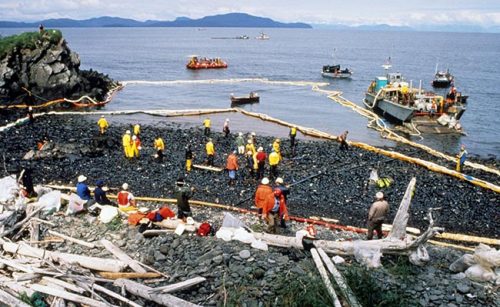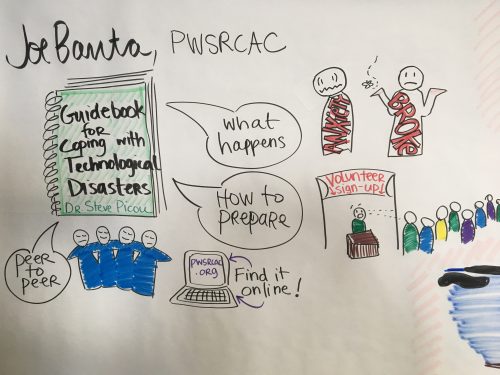Report suggests how to prepare for Arctic oil spills
November 19, 2019
Paula Dobbyn
907-274-9698

Communities can build their resilience to disruptive oil spills by using new reports from workshops held in Alaska and across the nation.
The Sea Grant Oil Spill Science Center and the Gulf Research Program of the National Academies of Sciences, Engineering, and Medicine convened the workshops starting in 2018. They were held in Anchorage, Alaska; Virginia Beach, Virginia; Santa Barbara, California; and Mobile and Bayou La Batre, Alabama.
The workshops identified ways that each region can prepare for an oil spill’s effects on public health, society and the economy.
Attendees included people involved in spill response, public health, seafood production, social science and education, as well as tribal citizens, elected officials and community leaders.
The Anchorage workshop, Feb. 20–21, drew 56 participants.
Alaska attendees said researchers and spill responders should better include the public, particularly residents directly affected by spills. Communication and inclusion should be culturally appropriate and meaningful, the Alaska report says.
Such collaboration is critical so researchers understand the subsistence way of life in Alaska and the value of local and traditional knowledge.
“Residents of coastal Alaska feel a sense of urgency in being prepared for industrial accidents, such as oil spills, due to the dramatic changes that are impacting their way of life,” said Davin Holen, a coastal community resilience specialist at Alaska Sea Grant who wrote the Alaska report. “This is especially evident in the Bering and Chukchi seas as sea ice dramatically retreats due to climate change, bringing with it new opportunities for ship traffic and oil and gas exploration.”

“Communities feel the pressure to be ready to respond to a technological disaster with few federal resources in the region for a quick response,” Holen said. “Yet at the same time, they feel unprepared.”
Holen is an anthropologist and assistant professor at the University of Alaska Fairbanks College of Fisheries and Ocean Sciences, which hosts Alaska Sea Grant.
The report also calls for more baseline studies on human health in coastal Alaska, along with more environmental monitoring and studies to describe the subsistence way of life and its economic and cultural value.
Read the report, “Setting Priorities for Health, Social and Economic Disruptions from Spills in Alaska,” a press release from National Sea Grant and the other regional oil spill preparedness reports.
ADDITIONAL CONTACT: Davin Holen, 907-274-9697, davin.holen@alaska.edu
ON THE WEB: alaskaseagrant.org


